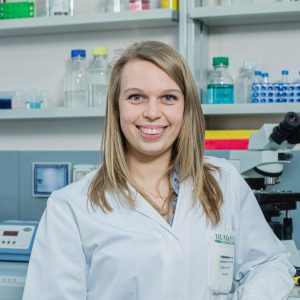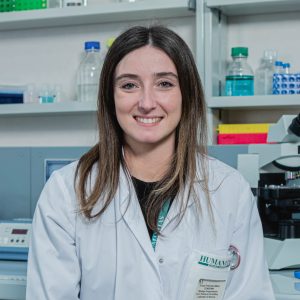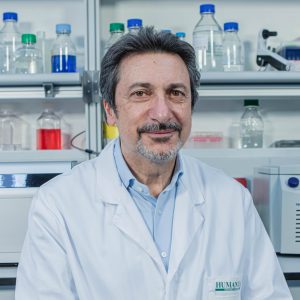Research Group
Sica Group
Molecular Immunology Lab
Our group uses genomic and proteomic approaches to map the functional relation between tumor growth and myeloid differentiation programs that sustain the expansion of immunosuppressive myeloid populations, such as Tumor-Associated Macrophages and Myeloid-Derived Suppressor Cells.
The challenge
Most innate myeloid immune cells – our first line of defense – have a short life span and need, even in steady-state conditions, to be constantly regenerated from blood stem cells in the bone marrow, in a process called hematopoiesis. During severe immunological stress, such as the one caused by infections, myeloid cells turnover increases and steady-state hematopoiesis, prompted by inflammatory signals, switches to an acute response program – called emergency hematopoiesis. This capacity for adaptation is essential for survival, but can also be exploited by cancer to support the production of pro-tumor cell populations.
Main research areas
Pathological expansion of suppressor myeloid cells
Immunologic stress produced by infections or cancer modifies the magnitude and composition of the hematopoietic output to guarantee proper supply of immune cells. In cancer, chronic inflammation mediates tumor development by promoting a constant influx of inflammatory cells that undergo towards a tumor-promoting reprogramming. Phenotypic and functional characterization of these expanding myeloid populations in cancer are however still poorly understood. We focus on cancer-related inflammatory and metabolic pathways that promotes the pathological expansion of suppressor myeloid populations in cancer, aiming at identifying novel therapeutic targets. The main goal is to exploit these new targets to re-educate the immune system in an antitumor mode. This objective is pursued by investigating the metabolic networks implicated in the aberrant myelopoiesis observed in cancer patients and by defining the impact of these metabolic perturbations on clinical outcomes.
Epigenetic alterations of myeloid cells in cancer
Cancer-driven granulo-monocytopoiesis stimulates pathological expansion of tumor-promoting myeloid populations, mostly tumor-associated macrophages (TAM) and myeloid-derived suppressor cells (MDSC). Accumulation TAM and MDSC enables cancer immune evasion and restricts cancer immunotherapy efficacy. Epigenetic alterations in myeloid precursors play a central role in the pro-tumor diversion of these cells. We aim to unveil the causal association between the epigenetic landscape acquired by tumor-associated myeloid cells and tumor immunosuppression, in the perspective to provide new indicators for the optimization of personalized anticancer treatments.
Selected publications
Immunosenescence, Inflammaging, and Frailty: Role of Myeloid Cells in Age-Related Diseases.
Heme catabolism by tumor-associated macrophages controls metastasis formation.
Implications of metabolism-driven myeloid dysfunctions in cancer therapy.
Immunometabolic Status of COVID-19 Cancer Patients.
Tumor-Derived Prostaglandin E2 Promotes p50 NF-κB-Dependent Differentiation of Monocytic MDSCs.
Melanoma-specific bcl-2 promotes a protumoral M2-like phenotype by tumor-associated macrophages.
Myelopoiesis, metabolism and therapy: a crucial crossroads in cancer progression.
Membrane Cholesterol Regulates Macrophage Plasticity in Cancer.
Myeloid-Derived Suppressor Cells: Ductile Targets in Disease.
Nicotinamide Phosphoribosyltransferase Acts as a Metabolic Gate for Mobilization of Myeloid-Derived Suppressor Cells.
Targeting Cancer Cells and Tumor Microenvironment in Preclinical and Clinical Models of Hodgkin Lymphoma Using the Dual PI3Kδ/γ Inhibitor RP6530.
Choosing the Best Chemotherapy Agent to Boost Immune Checkpoint Inhibition Activity.
Protumor Steering of Cancer Inflammation by p50 NF-κB Enhances Colorectal Cancer Progression.
RORC1 Regulates Tumor-Promoting “Emergency” Granulo-Monocytopoiesis.
Targeting tumor-associated macrophages with anti-CSF-1R antibody reveals a strategy for cancer therapy.
Macrophage plasticity and polarization: in vivo veritas.
Group members




